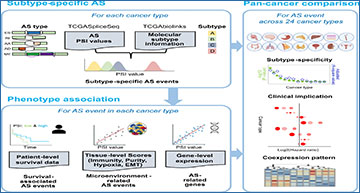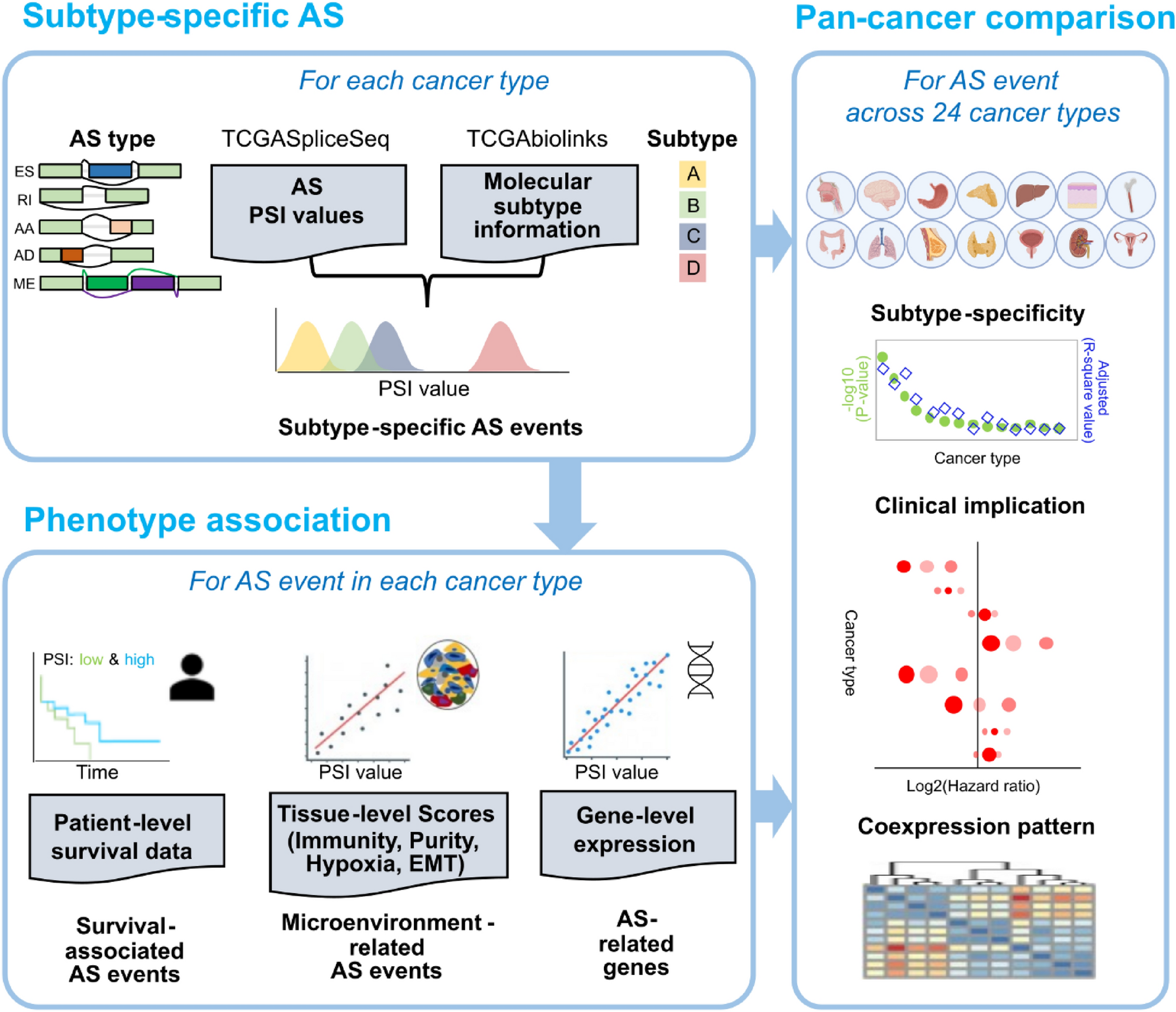Alternative splicing (AS) is a post-transcriptional regulation that leads to the complexity of the transcriptome. Despite the growing importance of AS in cancer research, the role of AS has not been systematically studied, especially in understanding cancer molecular classification. Researchers from the Catholic University of Korea analyzed the molecular subtype-specific regulation of AS using The Cancer Genome Atlas data and constructed a web-based database, named Alternative Splicing for Cancer Molecular Classification (AS-CMC). Their system harbors three analysis modules for exploring subtype-specific AS events, evaluating their phenotype association, and performing pan-cancer comparison. The number of subtype-specific AS events was found to be diverse across cancer types, and some differentially regulated AS events were recurrently found in multiple cancer types. The researchers analyzed a subtype-specific AS in exon 11 of mitogen-activated protein kinase kinase 7 (MAP3K7) as an example of a pan-cancer AS biomarker. This AS marker showed significant association with the survival of patients with stomach adenocarcinoma. The analysis revealed AS as an important determinant for cancer molecular classification. AS-CMC is the first web-based resource that provides a comprehensive tool to explore the biological implications of AS events, facilitating the discovery of novel AS biomarkers.
AS-CMC workflow
AS-CMC provides three analysis modules. In the “Subtype-specific AS” module (top left), differential regulation of AS PSI values was tested among molecular subtypes provided by TCGAbiolinks. We used AS events in five splice types (ES, RI, AA, AD, and ME). In the “Phenotype association” module (bottom left), each AS event was evaluated in association with patient-level (clinical outcomes), tissue-level (microenvironment), and gene-level (gene-expression) data. In the “Pan-cancer comparison” module (right), the analyzed data pertaining to each AS event is displayed in a panoramic view across cancer types. In the pan-cancer view, users can access plots summarizing subtype-specificity, clinical implications, and correlations with gene expression.
Availability – AS-CMC is available at http://www.pmrc.re.kr/ASCMC/.
Park J, Lee JO, Lee M et al. (2022) AS-CMC: a pan-cancer database of alternative splicing for molecular classification of cancer. Sci Rep 12, 21074. [article]





